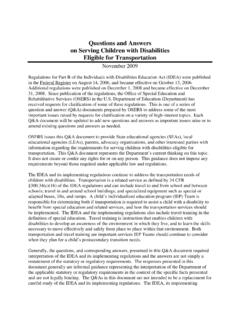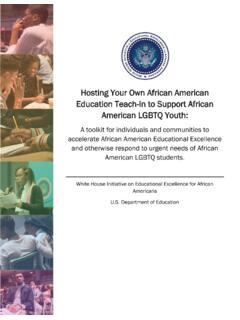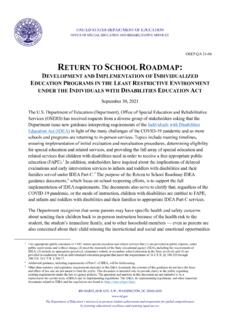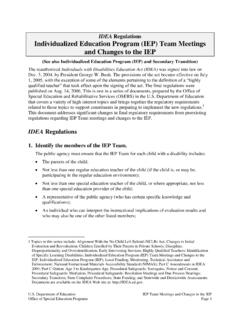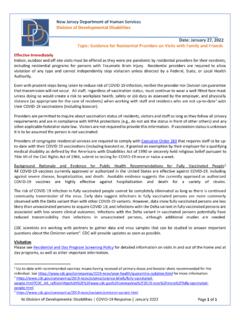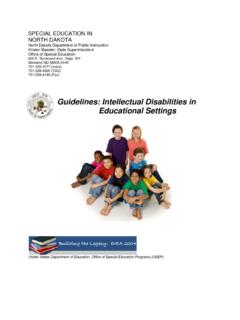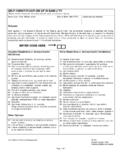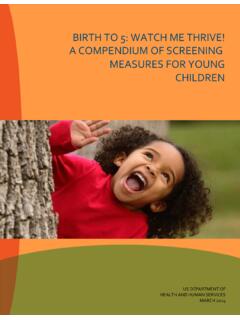Transcription of UNITED STATES DEPARTMENT OF EDUCATION OFFICE OF …
1 UNITED STATES DEPARTMENT OF EDUCATION . OFFICE OF SPECIAL EDUCATION AND REHABILITATIVE SERVICES. OFFICE OF SPECIAL EDUCATION PROGRAMS. OSEP QA 22-01. QUESTIONS AND ANSWERS ON SERVING CHILDREN WITH. disabilities PLACED BY THEIR PARENTS IN. PRIVATE SCHOOLS. Revised February 2022. Part B of the Individuals with disabilities EDUCATION Act (IDEA Part B) at Section 612(a)(10)(A). and its implementing regulations at 34 through contain specific requirements regarding State and local responsibilities for equitable services for parentally- placed private school children with disabilities . 1 The DEPARTMENT of EDUCATION ( DEPARTMENT ), OFFICE of Special EDUCATION and Rehabilitative Services (OSERS) issues this Questions and Answers (Q&A) document to provide State educational agencies (SEAs), local educational agencies (LEAs), parents, private school officials, advocacy organizations, and other interested parties with information regarding these requirements.
2 2. Children with disabilities attending private schools will generally fall into one of three categories: (1) those placed by their parents, who are not enrolled in the LEA, and for whom the provision of a free appropriate public EDUCATION (FAPE) is not at issue; (2) those placed by their parents and who are, or previously were, enrolled in the LEA and the provision of FAPE is at issue; and (3) those placed by the LEA as the means of ensuring that FAPE is made available. As used in this document, the phrase FAPE is not at issue means there is no disagreement between the parent and LEA about the availability of a program to provide FAPE to the child, and the parent has placed the child in a private school and is not seeking financial reimbursement for the private school placement.
3 1. This Q&A document only addresses requirements under the IDEA related to equitable services for parentally-placed private school children with disabilities , including home-schooled children with disabilities as determined by State law. Children with disabilities also have rights under two civil rights laws that prohibit discrimination on the basis of disability Section 504 of the Rehabilitation Act of 1973 (Section 504). and Title II of the Americans with disabilities Act (Title II). Section 504 prohibits disability discrimination by recipients of Federal financial assistance, such as SEAs and LEAs. Title II prohibits discrimination by public entities, including SEAs and LEAs, regardless of receipt of Federal financial assistance.
4 The OFFICE for Civil Rights (OCR) in the DEPARTMENT of EDUCATION enforces Section 504 in public elementary and secondary schools. Also, in this context, OCR shares in the enforcement of Title II with the DEPARTMENT of Justice (DOJ). DOJ also provides technical assistance on the requirements of Title II. More information about these laws is available at: and 2. This Q&A document does not address requirements under the IDEA related to children with disabilities who are or have been placed in or referred to a private school or facility by a public agency as a means of providing special EDUCATION and related services under 34 through Further, this Q&A document does not address placement of children by their parents in private schools when there is a disagreement between the parents and a public agency about provision of a free appropriate public EDUCATION (FAPE) to the child and the parent is seeking financial reimbursement for private school placement under 34 400 MARYLAND AVE.
5 , WASHINGTON, DC 20202-2800. The DEPARTMENT of EDUCATION 's mission is to promote student achievement and preparation for global competitiveness by fostering educational excellence and ensuring equal access. QUESTIONS AND ANSWERS ON SERVING CHILDREN WITH disabilities PLACED BY THEIR PARENTS IN PRIVATE SCHOOLS. This Q&A document is intended to provide guidance regarding the IDEA requirements applicable to the first category of students children with disabilities placed by their parents in private schools, who are not enrolled in the LEA, and for whom the provision of FAPE is not at issue. As explained in this Q&A document, children with disabilities placed in private schools by their parents where FAPE is not at issue do not have an individual entitlement to the special EDUCATION and related services they would receive if they were enrolled in a public school or placed in a private school by the LEA as a means of ensuring FAPE is made available.
6 3 Depending on State law, private schools may not be required to meet State personnel or curriculum standards. 4. Further, children with disabilities placed by their parents in private schools do not have the right to all of the protections under IDEA. For example, IDEA's due process procedures do not apply to issues regarding the provision of services to any particular parentally-placed private school child with a disability. Parents of such children may only use IDEA's due process procedures to resolve matters concerning an LEA's obligation to meet the child find requirements. 5. While IDEA provides no individual entitlement to children with disabilities whose parents have placed them in a private school when FAPE is not at issue, the law does require that an LEA.
7 Spend a proportionate amount of its IDEA Part B funds to provide equitable services to this group of children, which could include direct and/or indirect services. 6 In making these decisions, IDEA requires that the LEA engage in timely and meaningful consultation to determine which children with disabilities from this group will be designated to receive special EDUCATION and related services. 7 Therefore, it is possible that some of these parentally-placed private school children with disabilities will not receive any special EDUCATION and related services. This Q&A document updates and supersedes the DEPARTMENT 's guidance, titled Questions and Answers on Serving Children with disabilities Placed by Their Parents in Private Schools issued in April 2011 and includes additional questions and answers that address topics that have arisen as the field continues to implement the applicable provisions of IDEA and its implementing regulations.
8 Some of the new questions reflect recent policy letters, while others address common questions that OSERS has received from stakeholders. New topics include: Equitable Services Providers addressing personnel qualification requirements that apply to equitable services providers under IDEA. 3. See Question D-2. 4. See Question G-1. 5. See Questions A-14 and Q-1. 6. See Question D-6. 7. See Section B of this Q&A document and Question C-1. 2. QUESTIONS AND ANSWERS ON SERVING CHILDREN WITH disabilities PLACED BY THEIR PARENTS IN PRIVATE SCHOOLS. Preschool Children with disabilities addressing the use of IDEA Part B funds for equitable services for preschool children with disabilities for whom FAPE has been made available.
9 Children Who Reside Out-of-State or Whose Parents Live in Other Countries clarifying the requirements that apply to parentally-placed private school children with disabilities from other STATES and other countries who attend private schools in the UNITED STATES . State-funded School Voucher and Scholarship Programs clarifying that children with disabilities who use State vouchers and scholarships to attend private schools are considered parentally-placed private school children with disabilities under IDEA and eligible for equitable services. Extended Public School Closures addressing the responsibilities of LEAs to provide equitable services to parentally-placed private school children with disabilities just as they have a responsibility to serve children with disabilities in public schools, as appropriate, during an extended public school closure.
10 The DEPARTMENT has determined that this document provides significant guidance under the OFFICE of Management and Budget's Final Bulletin for Agency Good Guidance Practices, 72 Fed. Reg. 3432 (Jan. 25, 2007). Other than statutory and regulatory requirements included in the document, the contents of this guidance do not have the force and effect of law and are not meant to bind the public. This document is intended only to provide clarity to the public regarding existing requirements under the law or agency policies. In addition, it does not create or confer any rights for or on any person. The questions and answers in this document are not intended to be a replacement for careful study of IDEA and its implementing regulations.


